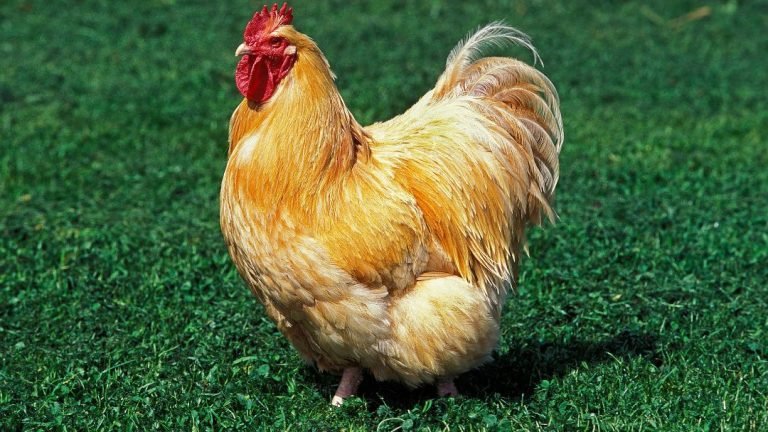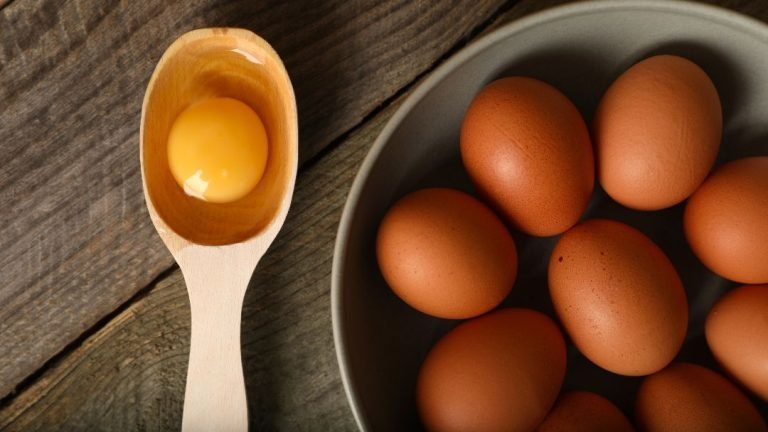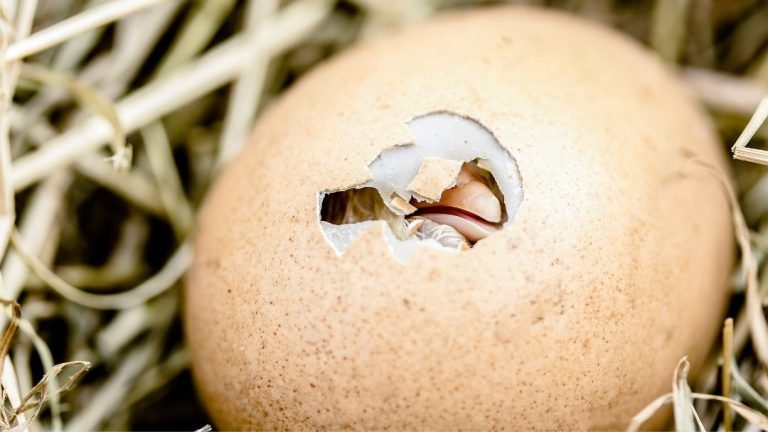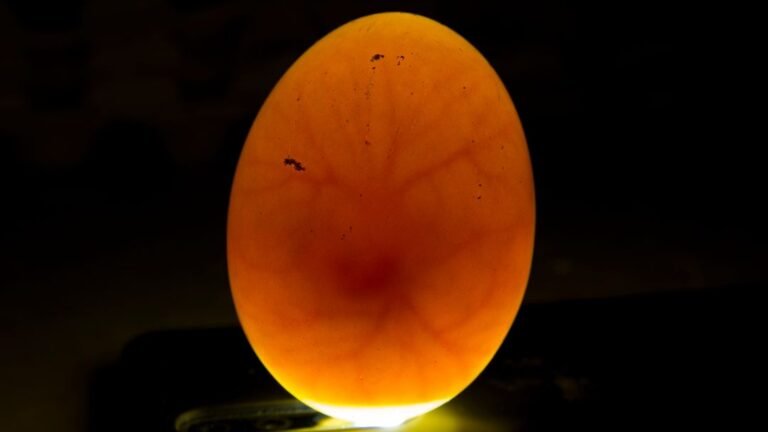Chickens may stop laying eggs due to age, stress, lack of proper nutrition, disease, or inadequate lighting conditions. It is important to address these factors in order to encourage egg production in chickens.
Keeping chickens in a healthy environment with access to proper nutrition, clean water, and a balanced diet can help maintain their egg-laying capabilities. Additionally, providing adequate lighting, managing stress levels, and taking preventative measures against diseases can also contribute to a consistent egg supply from chickens.
By understanding the reasons behind reduced egg production, chicken farmers can implement the necessary steps to ensure a steady supply of eggs.
Common Reasons For Decreased Egg Production
Chickens may stop laying eggs due to several common reasons such as age, stress, inadequate nutrition, disease, or environmental factors impacting their egg production. It is important to address these issues to ensure optimal egg-laying performance.
Aging Hens
As hens grow older, their egg production tends to decline. This is a natural process and is influenced by factors such as genetics and breed. Here are some reasons why aging hens may stop laying eggs:
- Reduced fertility: Older hens may experience reduced fertility, leading to fewer eggs.
- Decreased egg quality: The quality of eggs laid by aging hens can decrease over time. The shells may become thinner and more fragile.
- Hormonal changes: Aging hens undergo hormonal changes that can affect their ability to produce eggs regularly.
- Molting: Hens typically molt once a year, shedding old feathers and regrowing new ones. During this time, they may temporarily stop laying eggs.
Stress Or Changes In the Environment
Chickens are sensitive creatures, and stress or changes in their environment can disrupt their egg-laying pattern. Here are some common stress triggers that can cause a decrease in egg production:
- Environmental changes: Any sudden changes in the coop’s temperature, lighting, or overall living conditions can stress out the hens. Examples include extreme weather conditions or relocating the coop.
- Predator presence: The constant fear of predators lurking around can stress the hens, leading to decreased egg production.
- Social hierarchy shifts: Chickens have a pecking order, and any changes in the flock’s dynamics can induce stress and affect egg-laying.
- Loud noises or disturbances: Frequent loud noises or disruptions near the coop can disrupt the chickens’ regular routines and lower egg production.
Nutritional Deficiencies
A well-balanced diet is crucial for hens to lay healthy eggs consistently. Nutritional deficiencies can hinder their reproductive system, resulting in decreased egg production.
Here are some common nutritional deficiencies that may cause a decline in egg-laying:
- Protein deficiency: Hens require sufficient protein intake to produce eggs. Inadequate protein can lead to a decrease in egg production or smaller-sized eggs.
- Lack of calcium: Calcium is essential for strong eggshells. If hens do not have access to calcium-rich sources like oyster shells or crushed eggshells, their egg production may suffer.
- Vitamin deficiencies: Lack of vitamins like Vitamin D, Vitamin E, and B vitamins can impact the overall health and reproductive capabilities of hens.
- Imbalance in essential nutrients: Hens need a well-rounded diet that includes a mix of grains, greens, and minerals. An imbalanced diet can affect their egg-laying abilities.
Remember, while there are common reasons for decreased egg production, it is always best to consult with a veterinarian or poultry expert to address specific concerns related to your flock’s health and productivity.
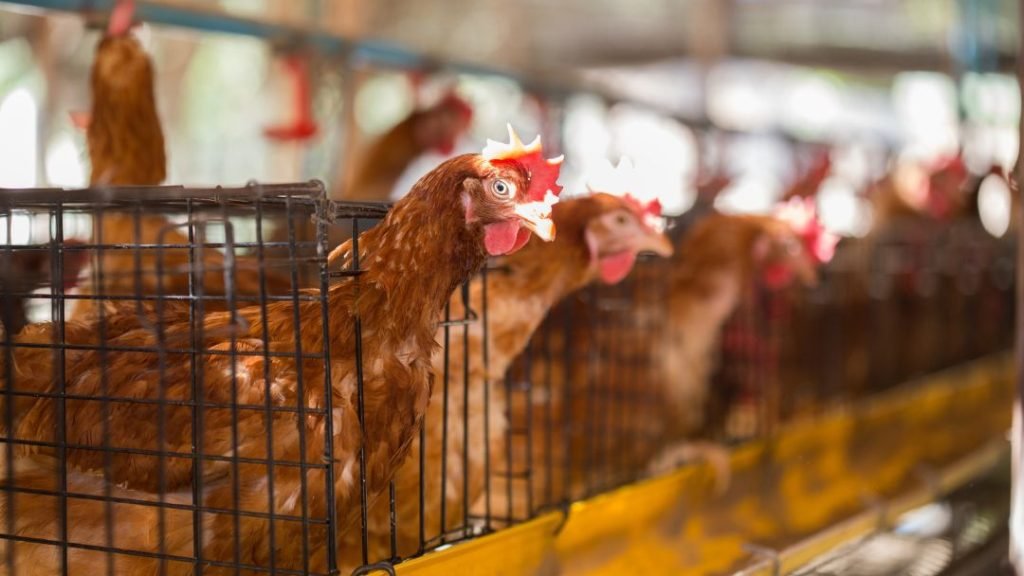
Factors Affecting Egg Production
Chickens may stop laying eggs due to a variety of factors, including age, diet, stress, illness, lighting conditions, and breed characteristics. These influences can greatly impact egg production and require careful management for consistent yield.
Chickens are fantastic egg-laying machines, but there are several factors that can disrupt their egg-laying production. Understanding these factors will help you identify the reasons why your chickens have stopped laying eggs. In this section, we’ll explore three key factors that can influence egg production in chickens: lighting conditions, extreme temperatures, and molt.
Lighting Conditions
- The amount of light chickens are exposed to plays a significant role in their egg production.
- Chickens require certain hours of light to stimulate their reproductive systems and maintain consistent egg-laying.
- Ideally, hens need at least 14 to 16 hours of daylight for optimum egg production.
- During the shorter days of winter, you can provide artificial lighting in the coop to compensate for the lack of natural daylight.
- Make sure the lighting is consistent and avoid sudden changes that might disrupt their laying routine.
Extreme Temperatures
- Extreme temperatures, be it too hot or too cold, can negatively impact the egg-laying ability of chickens.
- In hot weather, hens might reduce or temporarily stop laying eggs to conserve energy and regulate their body temperature.
- Similarly, during extremely cold weather, hens redirect their energy towards staying warm instead of producing eggs.
- Providing proper insulation and ventilation in the coop can help regulate the temperature and minimize its impact on egg production.
Molt
- Molt is a natural process where chickens shed and replace their feathers.
- During molt, hens divert energy from egg production to growing new feathers, resulting in a temporary pause in laying eggs.
- Molting usually occurs annually and can last up to several weeks.
- You can support your chickens during molt by providing a balanced diet rich in protein and ensuring they have access to a calm and stress-free environment.
Understanding these factors and their impact on egg production is crucial for poultry farmers and backyard chicken keepers. By addressing lighting conditions, managing extreme temperatures, and supporting chickens during molt, you can help ensure consistent egg-laying productivity.
Identifying And Resolving Health Issues
Chickens may stop laying eggs due to various health issues that can affect their reproductive system. It is important for chicken owners to be able to identify and resolve these health problems promptly to ensure the optimal health and productivity of their flock.
Here are some common health issues that may cause chickens to stop laying eggs:
Parasites And Pests
External parasites, such as mites and lice, can cause stress and discomfort to chickens, leading to decreased egg production. Regular inspection of the feathers and skin can help identify these parasites.
Treatments such as dusting with diatomaceous earth or using natural remedies like essential oils can effectively control and eliminate parasites.
Bacterial Or Viral Infections
Infections like avian influenza or Newcastle disease can cause a sudden halt in egg-laying. Symptoms may include respiratory distress, diarrhea, and a decline in overall health.
Quarantining infected birds and seeking veterinary advice is essential to prevent the spread of infection. Vaccinations can also be given to protect the flock from certain diseases.
Reproductive Problems
Sometimes, chickens may experience reproductive issues that result in a decline in egg production. These can include problems such as egg binding, where an egg gets stuck inside the reproductive tract, or internal laying, where the eggs are laid internally rather than through the vent.
Providing a calcium-rich diet, ensuring proper lighting conditions, and keeping stress levels low can help minimize reproductive problems.
Nutritional Deficiencies
Lack of essential nutrients like calcium, protein, and vitamins can negatively impact the egg-laying capacity of chickens. A balanced diet that includes quality layer feed, supplemented with calcium sources like crushed oyster shells, can help ensure optimal egg production.
Regular access to fresh water is also crucial for eggshell formation.
Environmental Factors
Extreme temperatures, poor ventilation, and inconsistent lighting patterns can disrupt a chicken’s egg-laying cycle. Maintaining a comfortable and well-ventilated coop, providing consistent lighting, and avoiding sudden temperature changes can help keep egg production on track.
Remember, prevention is key to maintaining healthy chickens and a consistent egg supply. Regular health checks, proper nutrition, good hygiene practices, and a stress-free environment will go a long way in ensuring the well-being of your flock and their egg-laying capabilities.
Managing Feeding And Nutrition
Chickens may stop laying eggs due to various reasons including inadequate nutrition, stress, health issues, aging, or environmental factors. It is important to carefully manage their feeding and nutrition to ensure optimal egg production.
Balanced Diet For Egg-Laying Hens
- Provide a high-quality feed:
- Choose a commercial poultry feed that is specifically formulated for egg-laying hens.
- Look for feed that contains a good balance of nutrients, including carbohydrates, proteins, fats, vitamins, and minerals.
- Avoid feeding with excessive filler ingredients or unnecessary additives.
- Offer a variety of grains and seeds:
- Supplement the base diet with grains and seeds such as corn, wheat, barley, and sunflower seeds.
- These can provide additional nutrients and keep the hens engaged and active.
- Include plenty of greens and vegetables:
- Offer a variety of fresh greens and vegetables, such as kale, spinach, lettuce, and carrot tops.
- These provide essential vitamins and minerals, as well as fiber, which aids in digestion.
- Ensure access to clean water:
- Chickens need access to fresh, clean water at all times.
- Water is crucial for digestion, nutrient absorption, and overall health.
- Avoid excessive treats:
- While treats can be enjoyed by chickens, moderation is key.
- Excessive treats can lead to imbalances in the diet and reduced egg production.
- Limit treats to no more than 10% of the total diet.
Calcium And Protein Requirements
- Adequate calcium:
- Calcium is essential for strong eggshells.
- Layer feed should contain around 3.5 to 4% calcium.
- Provide additional calcium sources such as crushed oyster shells or eggshells.
- Sufficient protein:
- Protein is vital for the development of eggs.
- Layer feed should contain around 16-18% protein.
- Ensure the hens have enough high-quality protein sources, such as legumes, soybean meal, or fish meal.
Supplements And Treats For Optimal Egg Production
- Omega-3 enriched feed:
- Omega-3 fatty acids are beneficial for both chickens and consumers.
- Omega-3 enriched feed can enhance egg quality and increase omega-3 content in eggs.
- Diatomaceous earth:
- Adding food-grade diatomaceous earth to the diet can help control internal and external parasites.
- It is a natural alternative to chemical treatments.
- Probiotics:
- Probiotics can improve digestion and nutrient absorption.
- Look for poultry-specific probiotic supplements or feed containing probiotics.
- Herbal supplements:
- Certain herbs like oregano and garlic have antimicrobial properties and can support overall health.
- Incorporating herbal supplements into the diet can promote a robust immune system.
- Limit treats:
- Treats should complement the balanced diet, not replace it.
- Excessive treatment can lead to nutrient imbalances and reduced egg production.
Remember, managing feeding and nutrition plays a crucial role in maximizing egg production. By providing a balanced diet, meeting calcium and protein requirements, and offering suitable supplements and treats, you can ensure the optimal health and productivity of your egg-laying hens.
Enhancing Comfort And Reducing Stress
Chickens, just like any living creature, require a comfortable and stress-free environment to continue their egg-laying journey. Factors such as coop size and layout, nesting boxes, and bedding, as well as social dynamics among flock members, can greatly impact their well-being.
Let’s dive into these elements to ensure your chickens are happy and productive.
Coop Size And Layout
- Provide ample space for your chickens to move around freely without feeling crowded.
- Consider the recommended guideline of 4 square feet per chicken indoors and 10 square feet per chicken outdoors.
- Ensure proper ventilation to prevent heat buildup and excessive moisture.
- Make sure the coop is secure and offers protection from predators.
- Provide windows or natural light sources for a healthier living environment.
Nesting Boxes And Bedding
- Place enough nesting boxes to accommodate each chicken, allowing them to lay their eggs comfortably.
- Use clean and soft bedding materials such as straw, wood shavings, or shredded paper.
- Regularly clean the nesting boxes, removing any soiled bedding or debris.
- Ensure the nesting boxes are private and secluded, offering a sense of security for egg-laying.
Social Dynamics Among Flock Members
- Avoid overcrowding your flock, as it can lead to aggression and stress among chickens.
- Provide multiple feeding and watering stations to minimize competition.
- Introduce new flock members gradually to reduce stress and establish a pecking order.
- Provide ample space for chickens to roam and engage in natural behaviors.
- Monitor for any signs of bullying or aggression, and intervene if necessary.
By focusing on enhancing comfort and reducing stress through aspects such as coop size and layout, nesting boxes and bedding, and social dynamics among flock members, you can create a harmonious environment for your chickens. This, in turn, will contribute to their overall well-being and ensure consistent egg production.
Evaluating Egg Collection And Handling Practices
Discover the reasons behind decreased egg production in chickens by evaluating their egg collection and handling practices. Implementing proper methods and identifying potential issues can help improve egg-laying efficiency.
Chickens are known for their ability to lay eggs consistently, but sometimes their egg production may slow down or stop altogether. There are several reasons why chickens may stop laying eggs, and one of them is related to their collection and handling practices.
In this section, we will explore the impact of egg collection and handling techniques on the productivity of your flock.
Frequency Of Collection
Collecting eggs at the right frequency is crucial for maintaining a steady egg production. Here’s why:
- Daily collection: It is recommended to collect eggs from nests at least once a day. Regular collection prevents eggs from piling up in the nests, which can discourage hens from continuing to lay eggs.
- Time-sensitive process: The longer eggs are left in the nest, the higher the chances of hens pecking at them or other chickens stepping on them, leading to the eggs being damaged or soiled.
- Consistency matters: Establishing a routine for collecting eggs helps maintain a reliable production rate and reduces the stress on hens.
Proper Storage And Handling Techniques
How you store and handle eggs can also impact egg production. Consider the following practices:
- Proper temperature: Eggs should be stored in a cool place with a temperature ranging from 45 to 55 degrees Fahrenheit. Avoid storing them near strong-smelling foods, as eggs can absorb odors.
- Correct orientation: Store eggs with the pointed end down to help maintain their freshness and prevent the air sac from detaching, which can compromise their quality.
- Handling with care: When handling eggs, make sure to do so gently, avoiding excessive shaking or impact. Rough handling can lead to cracks or weakened shells, rendering the eggs unsuitable for consumption.
Dirty Or Cracked Eggs’ Impact On Production
The presence of dirty or cracked eggs can have serious implications on egg production. Here’s how:
- Hygiene matters: Dirty eggs should be cleaned promptly, as they provide a breeding ground for bacteria. Unclean eggs can lead to diseases spreading among the flock or cause hens to reject the nests for laying.
- Unusable eggs: Cracked eggs are prone to contamination and are unsuitable for consumption. If cracked eggs are left in the nests, hens may associate the nest with cracked eggs and avoid laying there altogether.
- Egg-eating behavior: Chickens may develop the habit of eating broken or spoiled eggs if they encounter them in the nest. This can be a difficult behavior to break and can lead to further loss of egg production.
Evaluating your egg collection and handling practices is essential for maintaining consistent egg production from your flock. Collecting eggs daily, storing them properly, and ensuring cleanliness and shell integrity are crucial steps in maximizing productivity.
By implementing these practices, you can ensure that your chickens continue to lay eggs regularly and provide a bountiful supply of fresh eggs.
Implementing Environmental Adjustments
Creating a comfortable and conducive environment for your chickens is crucial for maintaining optimal egg production. By implementing certain adjustments to their surroundings, you can ensure that your feathered friends remain happy and productive. Here are a few key areas to focus on:
Controlling Lighting And Temperature
- Adjust the lighting in the coop to simulate natural daylight conditions:
- Maintain a consistent daily light cycle of 14-16 hours for layers.
- Use timers to provide a gradual increase or decrease in light intensity.
- Avoid sudden changes in lighting, as it can disrupt the laying cycle.
- Regulate the temperature in the coop to keep chickens comfortable:
- Provide proper insulation to prevent extreme temperature fluctuations.
- Install heating equipment during cold weather to maintain warmth.
- Ensure adequate ventilation to cool the coop during hot weather.
Ventilation And Air Quality In The Coop
- Promote good ventilation to maintain fresh air circulation:
- Provide multiple openings for air exchange without causing drafts.
- Regularly clean and remove any debris or dust in the coop.
- Avoid overcrowding, as it can lead to poor air quality and increased moisture levels.
- Monitor and maintain optimal air quality for productive hens:
- Regularly check for signs of ammonia buildup, indicating poor ventilation.
- Place appropriate bedding materials to absorb moisture and prevent odors.
- Ensure proper airflow to reduce the risk of respiratory diseases.
Reducing Noise And Predator Stress
- Limit external noise disturbances to keep chickens calm:
- Choose a quiet location for your chicken coop, away from high-traffic areas.
- Install soundproofing materials to minimize noise levels.
- Avoid sudden loud noises or disturbances near the coop.
- Minimize predator stress to encourage egg production:
- Secure the coop with strong fences and predator-proofing measures.
- Regularly inspect and repair any damage that may make it vulnerable to predators.
- Provide hiding places and secure perches to reduce stress and anxiety.
By implementing these environmental adjustments, you can create an ideal habitat for your chickens, promoting consistent egg-laying and ensuring the well-being of your flock. Keep in mind that a happy and comfortable chicken is a productive chicken!
Preventative Measures For Long-Term Egg Laying
Chickens are wonderful creatures that provide us with fresh eggs on a regular basis. However, there may be times when your hens stop laying eggs, leaving you puzzled and wondering what went wrong. To ensure a consistent supply of eggs from your flock, it’s essential to take preventative measures.
Here are some effective steps you can take to promote long-term egg laying:
Regular Health Checks And Vaccinations
- Conduct regular health checks for your chickens to detect any potential health issues early on.
- Schedule routine visits with a veterinarian to ensure your flock is in optimal health.
- Administer necessary vaccinations to protect your chickens from common diseases.
- Keep an eye out for signs of illness, such as lack of appetite, abnormal behavior, or lethargy, and seek appropriate medical attention if needed.
Maintaining A Clean And Hygienic Coop
- Clean your chicken coop regularly to prevent the buildup of bacteria and parasites.
- Remove soiled bedding, feathers, and other debris to maintain a healthy environment.
- Disinfect the coop periodically to eliminate harmful microorganisms.
- Provide proper ventilation to reduce moisture and ammonia levels, which can negatively impact egg production.
- Use clean nesting materials to ensure comfortable and sanitary egg-laying conditions.
Providing Adequate Exercise And Free-Ranging Opportunities
- Allow your chickens to roam freely in a secure area, such as a fenced yard, during the day.
- Encourage exercise by providing ample space for them to move around.
- Offer a variety of perches, ramps, and objects for your chickens to explore and play with.
- Grazing on grass and foraging for insects can help keep your hens active and engaged.
- Monitor their outdoor activities to ensure their safety and protect them from predators.
Taking these preventative measures can significantly improve the overall health and productivity of your flock. By prioritizing their well-being, providing them with a clean and stimulating environment, and administering necessary vaccinations, you can promote long-term egg laying and enjoy an abundant supply of fresh eggs from your happy hens.
Conclusion
It’s important for chicken owners to understand the reasons why their hens may stop laying eggs. Factors such as age, health issues, nutrition, stress, and environmental conditions can all play a role in a decline in egg production. By addressing these key areas, you can support your flock’s egg-laying abilities and ensure a consistent supply of fresh eggs.
Regularly monitoring the health and well-being of your chickens, providing a balanced diet, minimizing stressors, and creating a comfortable environment are all crucial steps to take. Additionally, consulting with a veterinarian or poultry expert can provide invaluable guidance and advice tailored to your specific situation.
By implementing these strategies, you can help maintain productivity and keep your chickens healthy and happy. Remember, a happy hen is a productive hen. So, give your chickens the care and attention they deserve, and they’ll reward you with delicious eggs for years to come.



